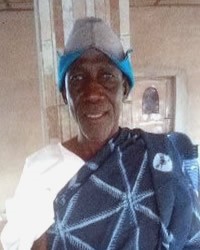Ake in Nigeria

Photo Source:
Anonymous
|
Send Joshua Project a map of this people group.
|
| People Name: | Ake |
| Country: | Nigeria |
| 10/40 Window: | Yes |
| Population: | 4,400 |
| World Population: | 4,400 |
| Primary Language: | Akye |
| Primary Religion: | Ethnic Religions |
| Christian Adherents: | 45.00 % |
| Evangelicals: | 6.00 % |
| Scripture: | Translation Started |
| Ministry Resources: | No |
| Jesus Film: | No |
| Audio Recordings: | Yes |
| People Cluster: | Benue |
| Affinity Bloc: | Sub-Saharan Peoples |
| Progress Level: |
|
Introduction / History
They call themselves Nunga, though they are known by outsiders as Akye (which was the name given to them by the Hausa). The Nunga people have come to terms with the name "Akye" because they are widely known by that name. Various Nunga communities present different versions as to the origin of their people. They all however claim to originate from the Kwararafa kingdom and first settled in Alingani then moved beyond to settle in Ugah, Gweyaka, Kiguna and Sabon Gida.
Where Are they Located?
The Nunga communities are surrounded by other ethnic groups such as the Eggon, Tiv, Alago, Fulani, Hausa, Gwandara, Ankwe, and Migili. Most of these groups are also found residing within the Nunga communities. According to the Nunga, their population ranges from 8,000 to 11,000 people.
What Are Their Beliefs?
The Nunga have many cultural festivals among which the Kangiri and Dasha are mostly celebrated. Kangiri is celebrated whenever there is drought in the communities. Rituals are done by the chief priest and they claim to have bountiful rainfall after the festival. Masqueraders dance all around the communities accompanied by drums and traditional flutes called igba made with a type of plant called gora or ye in the Nunga (Akye) language. Okpa, a type of kampala (an African dyed garment) is worn during the festival. Iko IFO (millet pudding) and nya izwa (beniseed soup) are special delicacies served during the festivals.
Fishing and farming is a major occupation among the Nunga. Catfish and tilapia are the fish mostly caught. Rice, beans, millet, beniseed, yams and cassavas are all grown. Sadly there is a decline at the rate in which yam is grown due to the Nunga crisis with the Fulani herdsmen. They stated "herdsmen eat our yet to be harvested produce that we have worked so hard for." For this reason, the Nunga began cultivating rice instead of their more traditional yams which has resulted in rice becoming their major crop.
Their language has shown a steady decline in its use by children and some adults even code switch with Hausa meaning Hausa has a stronger influence on the Nunga youth. Nunga is a predominantly Muslim community with 80% of the population Muslim, 15% Christians and 5% African traditional religion adherent.
There are no literacy resources and materials in Nunga, therefore, Hausa and English are used in schools and churches and for general reading and writing. Some churches however use a little Nunga for prayers and songs.
Prayer Points
Pray that God will give the Nunga people the desires of their heart so that they can have the translation of the Bible in their own language.
Pray for the Nunga people's hearts to be open to Christ's invitation
Pray for Nunga songs of worship and prayers of thanksgiving to be heard throughout the land.
Pray that the Fulani herdsmen will one day eat with the Nunga people instead of stealing yams from them.